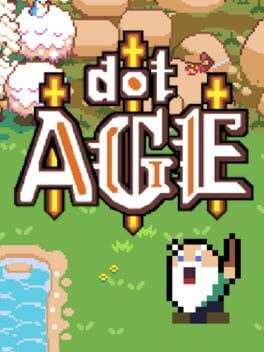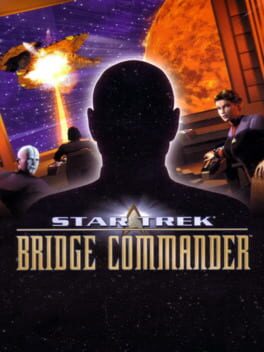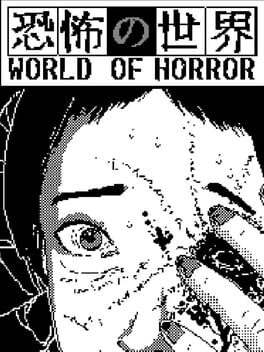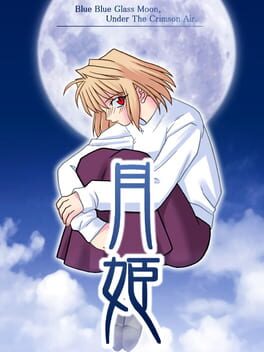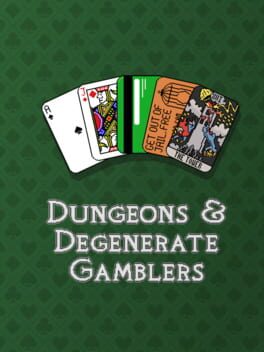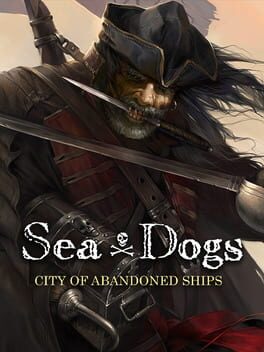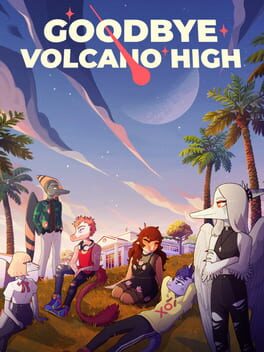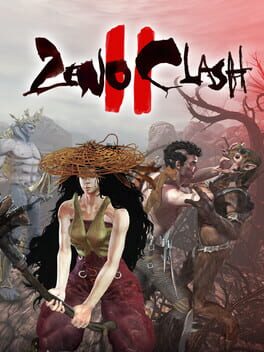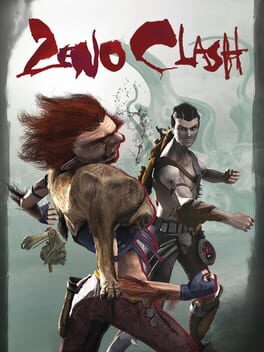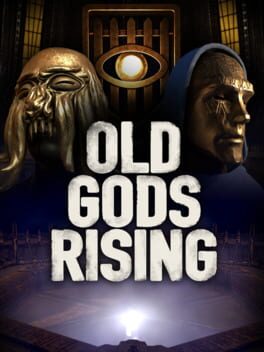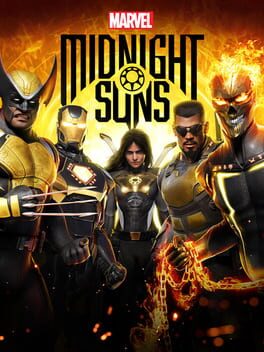dryocampa
2023
2024
EDIT: leaving my original review below because i think some of the perspective and analysis still stands, but after at least 50 hours i've landed firmly in the pro-balatro camp for a number of reasons.
i was initially dismissive of the game due to what i still perceive as a fairly low skill ceiling to "winning" a run. that's still sort of true, insofar as finding a combination of jokers that'll let you make 100,000 chips on white stake is not a difficult job. once you move beyond that, to hunting higher stakes, antes, or challenge runs, balatro begins to shine impeccably. this game is so finely tuned, back to front, in terms of letting the player make interesting, intelligent choices. every action, even those as simple as a discard, comes with a cost-benefit analysis. every additional hand played means losing a dollar, every dollar spent means losing out on potential interest. every joker used for a supplementary benefit takes up a valuable spot that could strengthen every hand, and every joker needs to be considered not solely on it's own merits, but how it fits into a wider strategy. a friend asks me for advice, which jokers or tarot cards are best, and I find it difficult to give a real answer, because everything is so contextually dependent, everything needs to be learned by doing, all while having each individual card and action be completely intuitive. it's accessible, with a low skill floor and a high skill ceiling, and an extremely reasonable learning curve.
there will be a lot of balatro-likes in the next few years, i've already seen one or two pop up in early access, once for roguelike mahjong, one for roguelike roulette, but many of these games will struggle in hitting the near-perfect balance of elements that this game achieves.
original review:
still actively playing this one but i'm a little hot and cold on it despite the hype.
for a card game, the actual playing of card can matter very little compared to cash and joker management, which inevitably become the core of the run every time. most of the runs i've won, i've won by finding the right three or four jokers that blast my multiplier into the stratosphere. i won my last run playing a pair of twos that could've nearly beat the final boss blind by themselves, and not because of any particularly involved decisions beyond identifying some good joker synergies half a run ago.
ironically, my most fun run yet was one that i lost, cheesing myself into like a hundred tarot cards and having half my deck made of enhanced cards, which was cool, but couldn't overcome the lack of a sufficiently broken joker to boost up my mult. lot's of decision making, timing, involved card/hand selections, and the impact was minimal compared to getting a big big multiplier every hand like in my other runs.
it's fun, for sure. cards and mechanics click together clearly and comprehensibly, there's a lot of well-made content and variety, but it feels like the skill ceiling is pretty drastically low, once you've identified how to make the number big. it almost has more resemblance to an idle game than any other card game i've played, which doesn't necessarily make it a bad game, but might not make for a great card game.
i was initially dismissive of the game due to what i still perceive as a fairly low skill ceiling to "winning" a run. that's still sort of true, insofar as finding a combination of jokers that'll let you make 100,000 chips on white stake is not a difficult job. once you move beyond that, to hunting higher stakes, antes, or challenge runs, balatro begins to shine impeccably. this game is so finely tuned, back to front, in terms of letting the player make interesting, intelligent choices. every action, even those as simple as a discard, comes with a cost-benefit analysis. every additional hand played means losing a dollar, every dollar spent means losing out on potential interest. every joker used for a supplementary benefit takes up a valuable spot that could strengthen every hand, and every joker needs to be considered not solely on it's own merits, but how it fits into a wider strategy. a friend asks me for advice, which jokers or tarot cards are best, and I find it difficult to give a real answer, because everything is so contextually dependent, everything needs to be learned by doing, all while having each individual card and action be completely intuitive. it's accessible, with a low skill floor and a high skill ceiling, and an extremely reasonable learning curve.
there will be a lot of balatro-likes in the next few years, i've already seen one or two pop up in early access, once for roguelike mahjong, one for roguelike roulette, but many of these games will struggle in hitting the near-perfect balance of elements that this game achieves.
original review:
still actively playing this one but i'm a little hot and cold on it despite the hype.
for a card game, the actual playing of card can matter very little compared to cash and joker management, which inevitably become the core of the run every time. most of the runs i've won, i've won by finding the right three or four jokers that blast my multiplier into the stratosphere. i won my last run playing a pair of twos that could've nearly beat the final boss blind by themselves, and not because of any particularly involved decisions beyond identifying some good joker synergies half a run ago.
ironically, my most fun run yet was one that i lost, cheesing myself into like a hundred tarot cards and having half my deck made of enhanced cards, which was cool, but couldn't overcome the lack of a sufficiently broken joker to boost up my mult. lot's of decision making, timing, involved card/hand selections, and the impact was minimal compared to getting a big big multiplier every hand like in my other runs.
it's fun, for sure. cards and mechanics click together clearly and comprehensibly, there's a lot of well-made content and variety, but it feels like the skill ceiling is pretty drastically low, once you've identified how to make the number big. it almost has more resemblance to an idle game than any other card game i've played, which doesn't necessarily make it a bad game, but might not make for a great card game.
half of a really good star trek game, puts a lot of attention and detail into making the granular aspects of ship-to-ship combat feel trek-accurate. a valiant effort, but unfortunately that gameplay focus leaves very little room for good or interesting storytelling in the campaign, with a plot that's mostly "go here, blow up ships, go here, blow up ships". definitely a product of this being made during the Nemesis era, where action focus becomes unavoidable, as it has remained forever. if i wanted to make a truly great Trek game, I'd start from here.
2021
Replayed this in an afternoon, crazy how much shorter it is once you have a solid grasp on utilizing your resources appropriately.
Warning: no story spoilers here, but some discussion about the game structurally that might weaken certain moments if you're going in totally blind.
Inscryption is unmatched at its best, and a little messy and confused at its worst.
To give a little perspective, I am a card game guy, but I have very little patience for the standard mechanism that a lot of modern card games adhere to: mana. In some form or another, most games from the MtG mold want to control their pacing and power-scaling by limiting how many cards you can play in a given timeframe, trying to ensure both players actually get to play the game without getting totally buried.
This is cowardly to me, ESPECIALLY in a single-player card game experience. My traditional card game of choice is Yu-Gi-Oh (which I am terrible at) because the architects of that game concluded a long time ago that card games are the most fun when you get to be a total sicko, stringing together complex webs of lightning-fast interactions to construct a huge wall of momentum from all the little connective tissue nonsense that you've become intimately attuned to.
(Slay the Spire is my one big exception to this, because it too is designed around finding insane huge synergistic combos to play as much card game as fast as possible)
Inscryption, while nowhere near as complex as the decades-old 11000+ card YGO, perfectly exemplifies that same feeling, once you recognize the flow of gameplay and how to make all the little pieces click together quickly, efficiently, and overwhelmingly. This is enhanced tremendously by the roguelike deckbuilder format, leading you to constantly evaluate card choices not just based on marginal differences in attack stats, but how you make a deck that clicks together optimally as a whole.
Which boggles the mind just a little bit, because once you reach a crescendo of this style of gameplay, executed masterfully, the game pulls you along for a back-half made out of objectively slower iterations on this formula, ditching so much of the flow and spontaneity of its best moments for stripped-down versions that feel considerably more generic and sluggish, one after another.
This is ultimately in service of a phenomenal work of narrative framing, right up my alley, which is overall a benefit to the game. But I do wish there was a way to fulfill the premise while holding firm to the game design principles that make the game so instantly engaging at the start. Still, it should be said that the lackluster sections are only so readily apparent because they pale in comparison to their better execution... in the same game. Making a good, fun, interesting card game is a very difficult balancing act, and even Inscryption's worse chunks of gameplay are leaps and bounds ahead of the full efforts of other games in the genre.
Inscryption as a package and an execution of the card game genre is still incomparable. Daniel Mullins does the thing I think a lot of card game sickos secretly dream of doing: creating an entirely new, fresh, original card game experience that is genuinely complete and confident in the execution of its many parts. It's worth far more than the sum of its parts.
Warning: no story spoilers here, but some discussion about the game structurally that might weaken certain moments if you're going in totally blind.
Inscryption is unmatched at its best, and a little messy and confused at its worst.
To give a little perspective, I am a card game guy, but I have very little patience for the standard mechanism that a lot of modern card games adhere to: mana. In some form or another, most games from the MtG mold want to control their pacing and power-scaling by limiting how many cards you can play in a given timeframe, trying to ensure both players actually get to play the game without getting totally buried.
This is cowardly to me, ESPECIALLY in a single-player card game experience. My traditional card game of choice is Yu-Gi-Oh (which I am terrible at) because the architects of that game concluded a long time ago that card games are the most fun when you get to be a total sicko, stringing together complex webs of lightning-fast interactions to construct a huge wall of momentum from all the little connective tissue nonsense that you've become intimately attuned to.
(Slay the Spire is my one big exception to this, because it too is designed around finding insane huge synergistic combos to play as much card game as fast as possible)
Inscryption, while nowhere near as complex as the decades-old 11000+ card YGO, perfectly exemplifies that same feeling, once you recognize the flow of gameplay and how to make all the little pieces click together quickly, efficiently, and overwhelmingly. This is enhanced tremendously by the roguelike deckbuilder format, leading you to constantly evaluate card choices not just based on marginal differences in attack stats, but how you make a deck that clicks together optimally as a whole.
Which boggles the mind just a little bit, because once you reach a crescendo of this style of gameplay, executed masterfully, the game pulls you along for a back-half made out of objectively slower iterations on this formula, ditching so much of the flow and spontaneity of its best moments for stripped-down versions that feel considerably more generic and sluggish, one after another.
This is ultimately in service of a phenomenal work of narrative framing, right up my alley, which is overall a benefit to the game. But I do wish there was a way to fulfill the premise while holding firm to the game design principles that make the game so instantly engaging at the start. Still, it should be said that the lackluster sections are only so readily apparent because they pale in comparison to their better execution... in the same game. Making a good, fun, interesting card game is a very difficult balancing act, and even Inscryption's worse chunks of gameplay are leaps and bounds ahead of the full efforts of other games in the genre.
Inscryption as a package and an execution of the card game genre is still incomparable. Daniel Mullins does the thing I think a lot of card game sickos secretly dream of doing: creating an entirely new, fresh, original card game experience that is genuinely complete and confident in the execution of its many parts. It's worth far more than the sum of its parts.
2020
oof. i might be missing something here but this did not grab me at alllll as a horror manga fan/occasional roguelike enjoyer. while this does a fair job of emulating the surface level aesthetics of - and this may surprise you - junji ito, it lacks a lot of the character depth and involvement that make his stories so engaging, by putting all the scaries through the filter of a silent stoic protagonist with no concrete place or involvement in the world of the story. sure, ito writes a lot of scared teenagers going through fucked up situations, but nothing in my first hour or two left me feeling like my teenager was getting particularly fucked up by these events.
the roguelike random-event based structure means that even while trying to solve a specific mystery, you'll just have random seemingly-unrelated baddies popping up around every corner. if your inspiration is largely focused around unstoppable horror monsters and you morph them into generic jrpg mobs, it really really neuters the impact.
beyond that, runs feel heavily heavily rng dependent with very little involvement in the story or variability in the combat. a lot of people dispute calling this a roguelike, but i have no idea what else you'd call it, and as an example of that genre, it feels very thin.
i might give it another shot or two but i was legitimately bummed that this game boils down to that, since it's seemed so aesthetically interesting for years.
the roguelike random-event based structure means that even while trying to solve a specific mystery, you'll just have random seemingly-unrelated baddies popping up around every corner. if your inspiration is largely focused around unstoppable horror monsters and you morph them into generic jrpg mobs, it really really neuters the impact.
beyond that, runs feel heavily heavily rng dependent with very little involvement in the story or variability in the combat. a lot of people dispute calling this a roguelike, but i have no idea what else you'd call it, and as an example of that genre, it feels very thin.
i might give it another shot or two but i was legitimately bummed that this game boils down to that, since it's seemed so aesthetically interesting for years.
2000
some real good stuff here. production-wise, you can see a lot of the structural quirks in the approach that were smoothed out and refined for fate stay night. overall it's a little thinner than the successor, both in the depth of the characters and the relationships that it wants to explore. the biggest failure when comparing the two directly is the protagonist. shiki, imo barely gets a chance to elevate beyond a boilerplate player stand-in, never getting the depth of character exploration that you get from shirou. there's some reasons for that in the text, but it thins the narrative impact of everything that happens to him.
i was gonna try to grit my teeth through the sex scenes but the first few made me legitimately want to hurl and i had to find a version of the game where they just cut to black and skip. as bad as they are in the OG fate before they were mercifully removed from the currently available version, these are immediately far worse, both narratively and content-wise.
very excited that the remake seems to want to go way further in-depth on each route, alongside an official localization.
i was gonna try to grit my teeth through the sex scenes but the first few made me legitimately want to hurl and i had to find a version of the game where they just cut to black and skip. as bad as they are in the OG fate before they were mercifully removed from the currently available version, these are immediately far worse, both narratively and content-wise.
very excited that the remake seems to want to go way further in-depth on each route, alongside an official localization.
2023
i think i've outgrown these games. wanted to give it an honest shot but the first few hours didn't do much to compel me. the o2 meter and carry weight got brutally annoying real fast and there's nothing about this world that i find compelling enough to sink in extra hours. i might've tried to mod these out but i guess game pass doesn't like modding the output of the most mod-vital developer of all time.
2023
i'm not a person that'll instinctually rip on something like this because of the concept alone (i love narrative-focused games and i'm a biiiig sucker for the overly sentimental), and i was actually kind of excited to be a contrarian about this one, in order to become more annoying to friends and loved ones. that being said, i think there's some overwhelming tonal and structural issues here that make the overall experience one that i wouldn't recommend.
the characters, relationships, and dialogue are mostly fine, they stay well out of cringe territory for most of the game. but the stakes of the plot are a little mismatched to the character drama. the main thread of the whole game is the impending breakup of the main character's band as the other members grow up and move on to their adult life, but that's a really difficult thing to reconcile with impending unavoidable death for all the characters involved, and the game doesn't really try to cross or balance the two.
the game had a well documented narrative reboot right at the start of the pandemic, with an entirely new writing team brought in. interviews related to this talk about how the pandemic itself had a big influence on the new direction they took, but nothing about the final story here feels like it's echoing that emotionally. my theory is that it's actually the opposite, that a lot of the most grim elements were severely toned down or cut to avoid appearing insensitive given the doom and gloom climate of the early lockdowns, which leaves it feeling a bit disjointed now.
beyond that, the game is very linear with no real impact from the player's choices or actions. that's probably the cost of doing business with fully voiced dialogue and animated cutscenes for almost everything (except for the D&D sequences, which are suspiciously missing almost the entire voice cast despite nearly every character being present) but you feel it for sure, despite the game constantly giving you an interface icon implying that your choices do matter.
i wouldn't call it bad by any means, but i think it misses the mark on the emotional stakes and feels a little lost by the ending.
in conclusion: i don't know why the school is called volcano high, because the big disaster is an asteroid and volcanos are never mentioned in the game.
the characters, relationships, and dialogue are mostly fine, they stay well out of cringe territory for most of the game. but the stakes of the plot are a little mismatched to the character drama. the main thread of the whole game is the impending breakup of the main character's band as the other members grow up and move on to their adult life, but that's a really difficult thing to reconcile with impending unavoidable death for all the characters involved, and the game doesn't really try to cross or balance the two.
the game had a well documented narrative reboot right at the start of the pandemic, with an entirely new writing team brought in. interviews related to this talk about how the pandemic itself had a big influence on the new direction they took, but nothing about the final story here feels like it's echoing that emotionally. my theory is that it's actually the opposite, that a lot of the most grim elements were severely toned down or cut to avoid appearing insensitive given the doom and gloom climate of the early lockdowns, which leaves it feeling a bit disjointed now.
beyond that, the game is very linear with no real impact from the player's choices or actions. that's probably the cost of doing business with fully voiced dialogue and animated cutscenes for almost everything (except for the D&D sequences, which are suspiciously missing almost the entire voice cast despite nearly every character being present) but you feel it for sure, despite the game constantly giving you an interface icon implying that your choices do matter.
i wouldn't call it bad by any means, but i think it misses the mark on the emotional stakes and feels a little lost by the ending.
in conclusion: i don't know why the school is called volcano high, because the big disaster is an asteroid and volcanos are never mentioned in the game.
2020
2013
launched into this immediately after finishing the first game, combat feels way more variable and less janky, but i enjoy it way less as a result. landing punches successfully lacks the same impact, enemies swarm a lot harder, and health pickups + a new energy system secondary to stamina all make the flow of combat feel much more restrictive. also it seems very long. no thanks!
2009
this is currently $4 on steam and i'm on a personal quest to play every off-brand fps released in the 00s so i ran through this today. what a strange fucking game, especially to have released back then.
i was sold on the idea of a primarily fistfighting FPS right away, and the combat system built around that concept feels monumentally weird. you've got very limited combat options, no big strings of combos or special moves. you're gonna be doing the same set of actions to every standard enemy you encounter through the whole game, but it's only like four hours long so you don't get bored with it.
the aesthetic is really special. from moment one this game looks top to bottom really nasty in a way i respect and love. nothing feels standard here, you've got a selection of short levels that all look and feel radically different, and the NPC design feels very classic Star Wars, just crazy biology among random people with no desire to worldbuild to justify any of it.
very unique, top to bottom. not a technically "great" game but at least entertaining, never particularly frustrating or slow.
i was sold on the idea of a primarily fistfighting FPS right away, and the combat system built around that concept feels monumentally weird. you've got very limited combat options, no big strings of combos or special moves. you're gonna be doing the same set of actions to every standard enemy you encounter through the whole game, but it's only like four hours long so you don't get bored with it.
the aesthetic is really special. from moment one this game looks top to bottom really nasty in a way i respect and love. nothing feels standard here, you've got a selection of short levels that all look and feel radically different, and the NPC design feels very classic Star Wars, just crazy biology among random people with no desire to worldbuild to justify any of it.
very unique, top to bottom. not a technically "great" game but at least entertaining, never particularly frustrating or slow.
2020
i love a good walking sim, but something about this didn't hit quite right. i'd mark this for spoiler warnings but I don't know how much I even could spoil, given the circumstances. stop reading here if you care
-
i think the core issue is the detachment between the protagonist and the player. i'm not saying every game needs to have a blank canvas stand-in for the player to inhabit, but it creates a conflict between the two kinds of storytelling the game is attempting.
your character is supposed to be a professor, recently burned by a massive academic blunder, investigating seemingly mystical activity below a very old English university. in theory, the developers want you to be curious about whether these phenomena are authentic, or an elaborate hoax perpetrated by the movie-maker who invited you.
the problem is that every single thing you discover seems to indicate that you're being fucked with. you repeatedly find what seems like totally irrefutable evidence that nothing happening is real. even the pro-magic evidence is extremely weak (like an ancient stone in England with weathered engraved Chinese characters, or extremely inconsistent timelines between the collage of ancient writing).
But the protagonist, despite being the one to discover all these clear hoaxes, remains a true believer until the end credits, following along blindly with zero regard to every inconsistency and anachronism you, and therefore he, have uncovered.
You spend the back half of this game feeling like you're puppeteering the most gullible man alive on a quest to prove that he is, indeed, the most gullible man alive, and it really doesn't feel intentionally written that way. the dramatic tone leaves it feeling less like an interesting characterization, and more like a narrative obstinance that the player can't overcome.
it's a frustrating disconnect, especially in a mystery context, and even more so in a game that continually offers dialogue choices that provide the illusion of influencing the story, with a side-character actively voicing this exact skepticism the whole time.
the game is a poor realization of a good premise, and I wish I left it feeling more intrigued and curious by its mysteries than bored with them.
-
i think the core issue is the detachment between the protagonist and the player. i'm not saying every game needs to have a blank canvas stand-in for the player to inhabit, but it creates a conflict between the two kinds of storytelling the game is attempting.
your character is supposed to be a professor, recently burned by a massive academic blunder, investigating seemingly mystical activity below a very old English university. in theory, the developers want you to be curious about whether these phenomena are authentic, or an elaborate hoax perpetrated by the movie-maker who invited you.
the problem is that every single thing you discover seems to indicate that you're being fucked with. you repeatedly find what seems like totally irrefutable evidence that nothing happening is real. even the pro-magic evidence is extremely weak (like an ancient stone in England with weathered engraved Chinese characters, or extremely inconsistent timelines between the collage of ancient writing).
But the protagonist, despite being the one to discover all these clear hoaxes, remains a true believer until the end credits, following along blindly with zero regard to every inconsistency and anachronism you, and therefore he, have uncovered.
You spend the back half of this game feeling like you're puppeteering the most gullible man alive on a quest to prove that he is, indeed, the most gullible man alive, and it really doesn't feel intentionally written that way. the dramatic tone leaves it feeling less like an interesting characterization, and more like a narrative obstinance that the player can't overcome.
it's a frustrating disconnect, especially in a mystery context, and even more so in a game that continually offers dialogue choices that provide the illusion of influencing the story, with a side-character actively voicing this exact skepticism the whole time.
the game is a poor realization of a good premise, and I wish I left it feeling more intrigued and curious by its mysteries than bored with them.
so far the gameplay itself is fine but this thing is loaded to the brim with slow, generic filler. for every twenty minutes of gameplay i've had another forty of a bad MCU BioWare game. five hours in and I can count the number of combat encounters on one hand. it's a story heavy game with a very weak story, much more generic Avengers-ish fare than the branding would suggest. not sure if it's worth the effort to break through to where I'm not being handheld with tutorials about how to become friends with iron man
update: i got through to the point where i felt like i was having genuine fun with the combat systems as-intended, but i'm putting it back on the shelf. the game is drowning in fully animated and voiced cutscenes that, even once they improve in quality/decrease in cringe, still feel like too much of a timesink. i like it but i don't think i like it enough to play it for 60-80 hours
update: i got through to the point where i felt like i was having genuine fun with the combat systems as-intended, but i'm putting it back on the shelf. the game is drowning in fully animated and voiced cutscenes that, even once they improve in quality/decrease in cringe, still feel like too much of a timesink. i like it but i don't think i like it enough to play it for 60-80 hours
